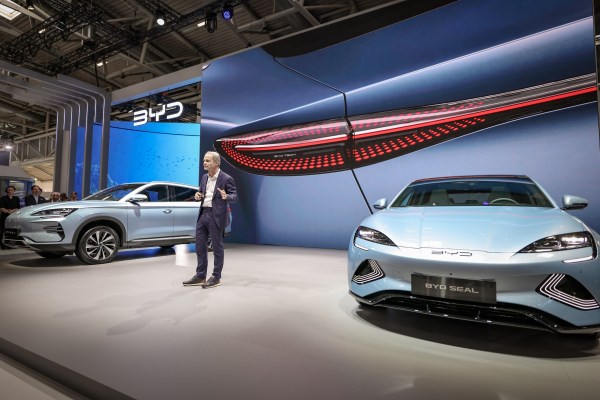Business
EU considers imposing tariffs against Chinese EV businesses


The European Commission is considering imposing punitive tariffs to protect European Union automakers against cheaper Chinese electric vehicle imports, which the agency says benefits from state subsidies.
“Global markets are now flooded with cheaper electric cars,” said European Commission President Ursula von der Leyen during her annual address to the EU’s parliament. “And their price is kept artificially low by huge state subsidies.”
The current standard EU rate for cars is 10%. The Commission will decide over the next 13 months whether to impose tariffs above that standard, which could spark a trade war with China.
The anti-subsidy investigation also includes non-Chinese brands that are made in China, like Tesla, Renault and BMW.
The investigation into the “flood” of Chinese EV businesses into Europe comes just a week after the IAA Mobility 2023 conference in Munich. Chinese EV businesses — from heavyweights like BYD to startups like XPeng — did indeed come in droves to the event, doubling their numbers from last year. The conference organizers said about 41% of presenters came from Asia.
At the event, European automakers hastened to show off lower-cost, high-tech EVs in an attempt to keep up with their Asian counterparts.
While Chinese automakers don’t yet have much market share in Europe, that could easily change as they make the push beyond China’s borders. Chinese EV makers are feeling the urgency to expand overseas, as consumer demand at home weakens amid an economic slowdown and Tesla’s aggressive price cuts boost domestic competition.
China’s auto exports grew 31% in August, according to China Passenger Car Association data. China’s share of EVs sold in the EU — which are on average about 20% cheaper than EU-made models — has risen to 8% and could hit 15% in 2025, said the European Commission.
That projection is backed up by recent announcements.
XPeng said at IAA that it would bring its premium SUV, the G6, to Europe next year to join other models it’s already selling in Norway, Sweden, Denmark and the Netherlands. At the event, BYD unveiled a new lineup of cars for the European market. And earlier this year, Nio outlined plans to launch a fresh brand of vehicles for the European market in 2024 that will be made at a new factory in China.
The Chinese Chamber of Commerce to the EU objected to the investigation, saying that China’s competitive advantage was not due to subsidies, and that the bloc should look at Chinese EVs objectively.
Like the U.S., the EU wants to reduce its reliance on China, particularly for materials and products needed to transition to electric. Beijing has also been growing closer with Moscow after Russia’s invasion with Ukraine, which has put some EU policymakers on edge.
-

 Entertainment6 days ago
Entertainment6 days agoWordPress.org’s login page demands you pledge loyalty to pineapple pizza
-

 Entertainment7 days ago
Entertainment7 days agoThe 22 greatest horror films of 2024, and where to watch them
-

 Entertainment6 days ago
Entertainment6 days agoRules for blocking or going no contact after a breakup
-

 Entertainment5 days ago
Entertainment5 days ago‘Mufasa: The Lion King’ review: Can Barry Jenkins break the Disney machine?
-

 Entertainment5 days ago
Entertainment5 days agoOpenAI’s plan to make ChatGPT the ‘everything app’ has never been more clear
-

 Entertainment4 days ago
Entertainment4 days ago‘The Last Showgirl’ review: Pamela Anderson leads a shattering ensemble as an aging burlesque entertainer
-

 Entertainment5 days ago
Entertainment5 days agoHow to watch NFL Christmas Gameday and Beyoncé halftime
-

 Entertainment3 days ago
Entertainment3 days agoPolyamorous influencer breakups: What happens when hypervisible relationships end























